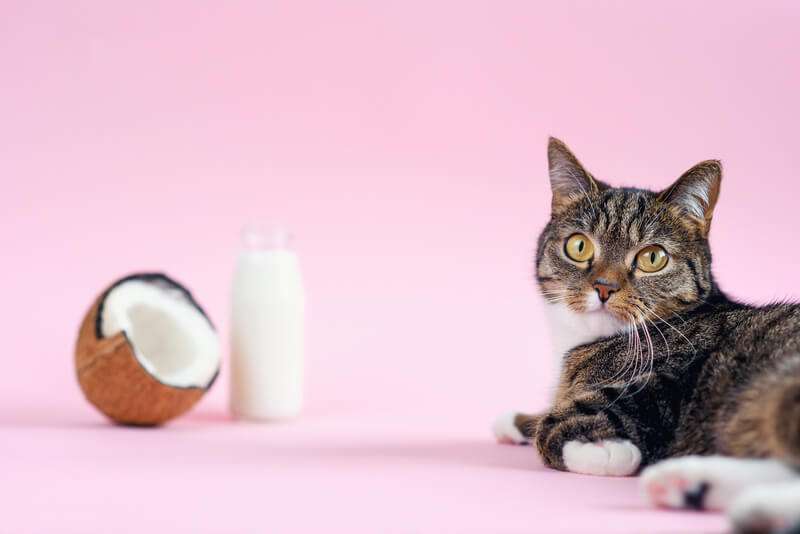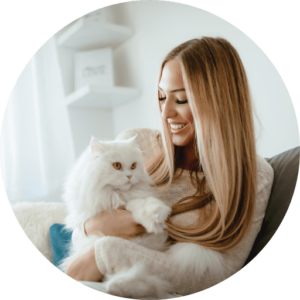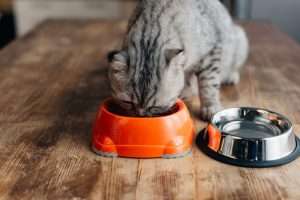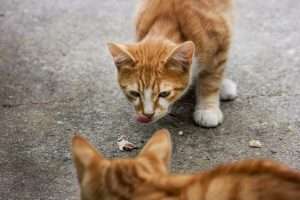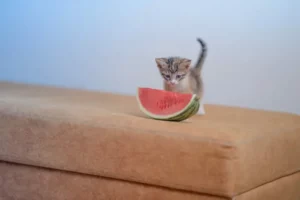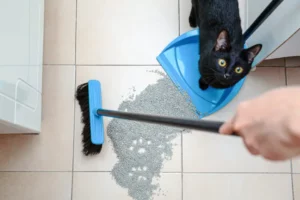Table of Contents
“Can cats eat coconut?” is a common question that many cat owners have. Coconut is a popular ingredient in many human foods and can be found in a variety of forms, including shredded, coconut milk, and coconut oil. As cat owners, it’s important to know which foods are safe for our feline friends and which ones can be harmful.
A balanced diet is essential for cats to maintain good health and well-being. This includes a variety of nutrients, such as protein, fats, vitamins, and minerals. While cats are carnivores and primarily need animal-based proteins, some fruits and vegetables can be a healthy addition to their diet in moderation.
In this article, we will explore whether or not cats can eat coconut and discuss the potential benefits and risks of feeding coconut to cats. We will also provide alternatives to coconut that can provide similar nutritional benefits. By the end of this article, you will have a better understanding of whether or not coconut is a safe addition to your cat’s diet.
Nutritional Value of Coconut for Cats
Coconut is a tropical fruit that is becoming increasingly popular as a healthy food choice for humans. But can cats eat coconut too? The answer is yes, in moderation. Coconut is a nutritious food that can provide several health benefits for cats.
Coconut is high in healthy fats, specifically medium-chain fatty acids (MCFAs), which can provide a source of energy for cats. MCFAs are easily digestible and can be quickly converted to energy, making them a great choice for active cats.
In addition to healthy fats, coconut also contains several vitamins and minerals that are essential for a cat’s health. Coconut is a good source of vitamin C, which can help boost the immune system and support healthy skin and coat. It also contains vitamins E and K, as well as minerals such as potassium, magnesium, and iron.
Furthermore, coconut contains antioxidants, which can help protect cells from damage and improve overall health. Antioxidants may also have anti-inflammatory properties, which can be helpful for cats with conditions such as arthritis.
Overall, coconut can be a healthy addition to a cat’s diet in moderation. However, it’s important to note that coconut should not be a major part of a cat’s diet and should only be given as an occasional treat or supplement.
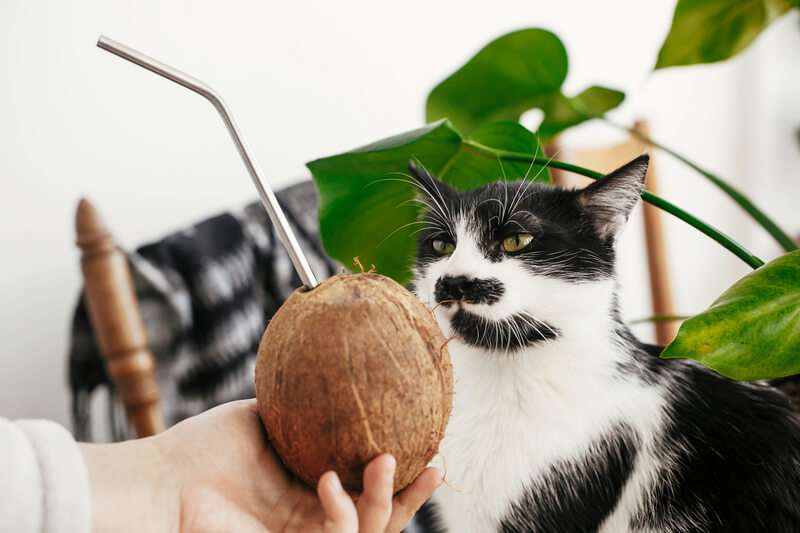
Potential Benefits of Feeding Cats Coconut
Feeding cats coconut can provide several potential benefits, including:
Improved Skin and Coat Health – The healthy fats and antioxidants in coconut can help improve skin and coat health. The fatty acids in coconut can help moisturize the skin and reduce inflammation, while the antioxidants can help protect against damage from environmental factors such as sun exposure.
Boosted Immune System – Coconut contains vitamin C, which can help boost the immune system and protect against illness and disease.
Increased Energy – The medium-chain fatty acids in coconut can provide a source of energy for cats, making it a good choice for active cats.
Improved Digestion – Coconut contains fiber, which can help promote healthy digestion and prevent constipation.
While there are potential benefits to feeding cats coconut, it’s important to do so in moderation and under the guidance of a veterinarian
Risks and Harm of Feeding Coconut to Cats
While coconut can offer some nutritional benefits to cats, there are also potential risks and harm associated with feeding coconut to cats. Here are some important things to consider:
Digestive problems: Coconut is high in fiber, which can be difficult for some cats to digest. Feeding too much coconut can lead to gastrointestinal problems such as diarrhea, vomiting, and abdominal discomfort.
High-fat content: Coconut is also high in fat, which can be harmful to cats if consumed in excess. A diet that is too high in fat can lead to weight gain, obesity, and other health problems such as pancreatitis.
Allergies: As with any food, some cats may have an allergic reaction to coconut. Symptoms of an allergic reaction can include itching, swelling, and gastrointestinal upset.
Specific health conditions: Some cats with certain health conditions such as pancreatitis or inflammatory bowel disease may not be able to tolerate coconut due to its high fiber and fat content.
It is important to note that while coconut can be a healthy addition to a cat’s diet in moderation, it should not be the main component of their diet. Feeding too much coconut can lead to health problems, so it’s important to consult with a veterinarian before making any major changes to a cat’s diet.
In summary, while coconut does offer some potential nutritional benefits for cats, there are also risks and harm associated with feeding it to them. It’s important to carefully consider a cat’s individual dietary needs and health status before introducing coconut or any other new food into their diet.
Alternatives to Coconut for Cats
While coconut can be a healthy addition to a cat’s diet, it’s important to remember that it should only be fed in moderation. If you’re looking for other sources of nutrients that are safe for your feline friend, here are some alternatives to coconut:
Cooked Meat or Fish: Cats are obligate carnivores, which means that they require meat in their diet to thrive. Cooked meat or fish can be a great source of protein for cats, as well as other important nutrients such as B vitamins and iron. However, it’s important to make sure that the meat or fish is cooked thoroughly and free from any bones or seasonings that could be harmful to your cat.
Eggs: Eggs are another great source of protein for cats, and they’re also rich in other important nutrients such as vitamin D and choline. You can offer your cat cooked eggs in small amounts as a treat or mix them into their regular food.
Pumpkin: Pumpkin is a great source of fiber for cats, which can help with digestive issues such as constipation. It’s also rich in beta-carotene, which is important for healthy skin and eyes. You can offer your cat pureed pumpkin in small amounts as a treat or mix it into their regular food.
When choosing foods to incorporate into your cat’s diet, it’s important to make sure that they’re getting a balanced and complete diet. This means ensuring that they’re getting all of the essential nutrients that they need, such as protein, fat, vitamins, and minerals. If you’re unsure about how to provide a balanced diet for your cat, speak with your veterinarian for advice and guidance.
It’s also important to remember that cats have specific nutritional needs and should not be fed a diet that’s primarily made up of human foods. While some human foods can be safe for cats in small amounts, it’s important to make sure that they’re getting a diet that’s specifically formulated for their needs.
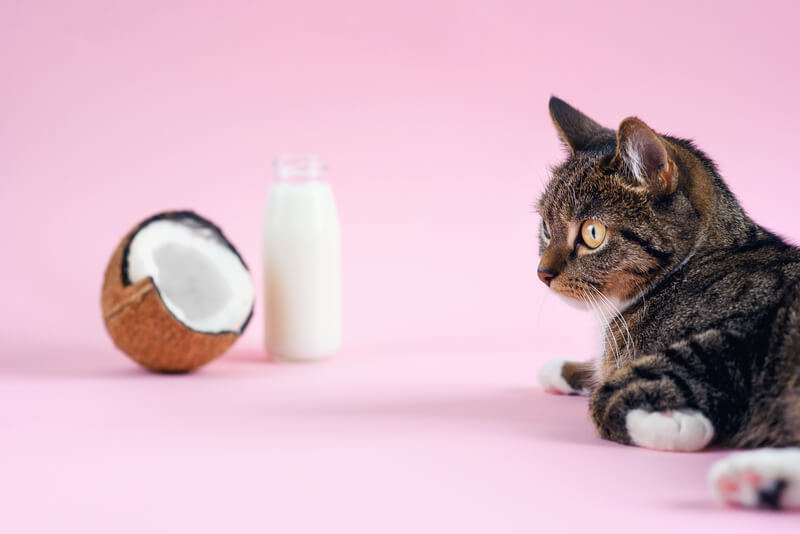
FAQs
Answer: No, there are no types of coconut that are toxic to cats.
Answer: Coconut should only be fed to cats in moderation as it is high in fat. A small amount of shredded coconut or coconut oil can be given as a treat, but it should not make up a significant portion of their diet.
Answer: Yes, cats can have coconut milk or coconut oil, but again in moderation. Coconut milk should be unsweetened and coconut oil should be virgin, unrefined, and preferably organic. Too much coconut milk or oil can cause digestive issues in cats.
Answer: Coconut provides healthy fats, vitamins, and minerals such as lauric acid, calcium, and magnesium that can support a cat's skin, coat, and overall health.
Answer: Yes, some cats can be allergic to coconut. Signs of an allergic reaction can include itching, vomiting, and diarrhea. If your cat shows any of these symptoms after consuming coconut, you should stop feeding it to them and consult with a veterinarian.
Conclusion
In conclusion, it is important for cat owners to understand the potential benefits and risks of feeding their feline companions certain foods. While coconut can be a healthy addition to a cat’s diet in moderation, it is important to be aware of the potential risks and to monitor your cat’s intake accordingly. Additionally, it is important to offer a balanced diet that includes a variety of safe and nutritious foods, such as cooked meat or fish, eggs, and pumpkin. Understanding your cat’s unique dietary needs and consulting with a veterinarian can help ensure that they are receiving the appropriate nutrients and staying healthy. By being mindful of what foods are safe for cats and making informed choices about their diet, cat owners can help promote their furry friend’s overall well-being.


